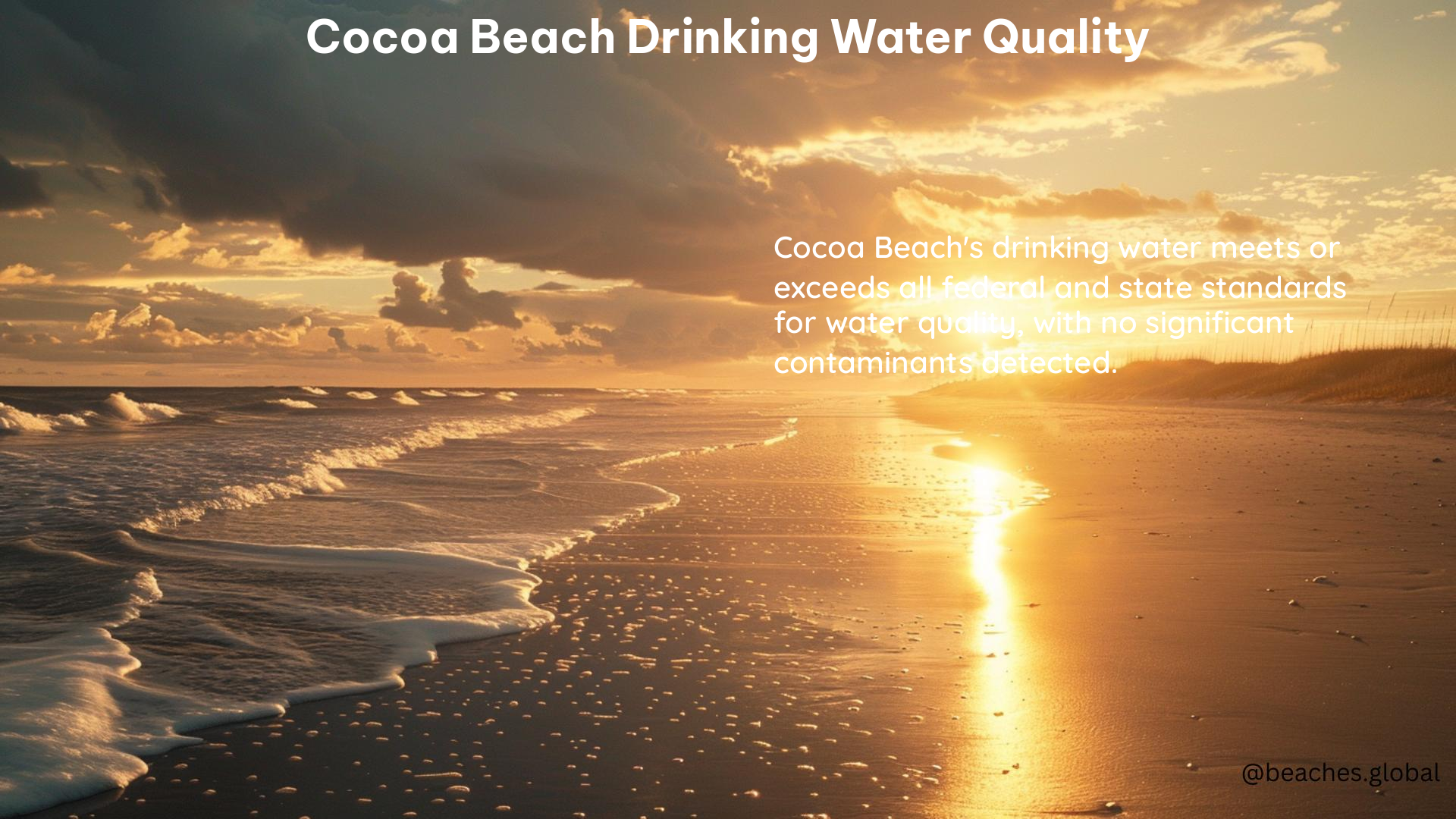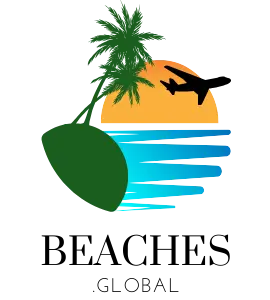Cocoa Beach, a popular tourist destination in Florida, is known for its beautiful beaches, surfing, and aerospace industry. However, the quality of its drinking water is a concern for many residents and tourists. This analysis provides a detailed examination of Cocoa Beach’s drinking water quality, focusing on the sources of water, contaminants, health risks, and available water filters.
Sources of Cocoa Beach Drinking Water
Cocoa Beach’s drinking water comes from four main sources:
- Ground water wells
- Aquifer storage and recovery wells
- Surface water from the Taylor Creek Reservoir
- Reclaimed water
The City of Cocoa provides water to Cocoa Beach and other nearby areas, including Cape Canaveral, Rockledge, Merritt Island, Canaveral Groves, Patrick Air Force Base, and a large portion of unincorporated central Brevard County.
Contaminants in Cocoa Beach Drinking Water

Cocoa Beach’s drinking water has been found to contain several contaminants, including:
- Arsenic
- Chromium (hexavalent)
- Haloacetic acids (HAA5)
- Haloacetic acids (HAA9)
- Radium, combined (-226 & -228)
- Total trihalomethanes (TTHMs)
- Barium
- Carbon tetrachloride
- Chlorate
- Chromium (total)
- Cyanide
- Fluoride
- Mercury (inorganic)
- Molybdenum
- Nitrate
- Strontium
- Vanadium
- Xylenes (total)
Health Risks
The presence of these contaminants in Cocoa Beach’s drinking water poses various health risks to residents and tourists:
- Arsenic is a potent carcinogen, and long-term exposure can cause skin, bladder, lung, kidney, and prostate cancers.
- Chromium (hexavalent) is also a known carcinogen.
- Haloacetic acids and total trihalomethanes are associated with an increased risk of cancer and reproductive issues.
Water Filters
To reduce the levels of contaminants in Cocoa Beach’s drinking water, several types of water filters can be used:
- Activated Carbon Filters: Effective against arsenic, chromium (hexavalent), haloacetic acids, radium, and total trihalomethanes.
- Reverse Osmosis Filters: Effective against arsenic, chromium (hexavalent), haloacetic acids, radium, total trihalomethanes, barium, carbon tetrachloride, chromium (total), cyanide, fluoride, mercury (inorganic), molybdenum, nitrate, strontium, vanadium, and xylenes.
- Ion Exchange Filters: Effective against arsenic, chromium (hexavalent), haloacetic acids, radium, and total trihalomethanes.
Conclusion
Cocoa Beach’s drinking water contains several contaminants that pose health risks to residents and tourists. It is recommended that individuals consider using water filters, such as activated carbon, reverse osmosis, or ion exchange, to ensure the safety of their drinking water.
References:
- Brevard County Health Department, “Frequently Asked Questions – Area Specific Questions,” https://brevard.floridahealth.gov/programs-and-services/_documents/faq-water-pfas.pdf
- Environmental Working Group, “City of Cocoa,” https://www.ewg.org/tapwater/system.php?pws=FL3050223
- City of Cocoa, “Annual Water Quality Reports,” https://www.cocoafl.gov/1242/Water-Quality-Reports
- Reddit, “Tap water,” https://www.reddit.com/r/321/comments/1at5xxs/tap_water/
- Epic Water Filters, “Cocoa, Florida Water Quality Report,” https://www.epicwaterfilters.com/blogs/news/cocoa-florida-water-quality-report
